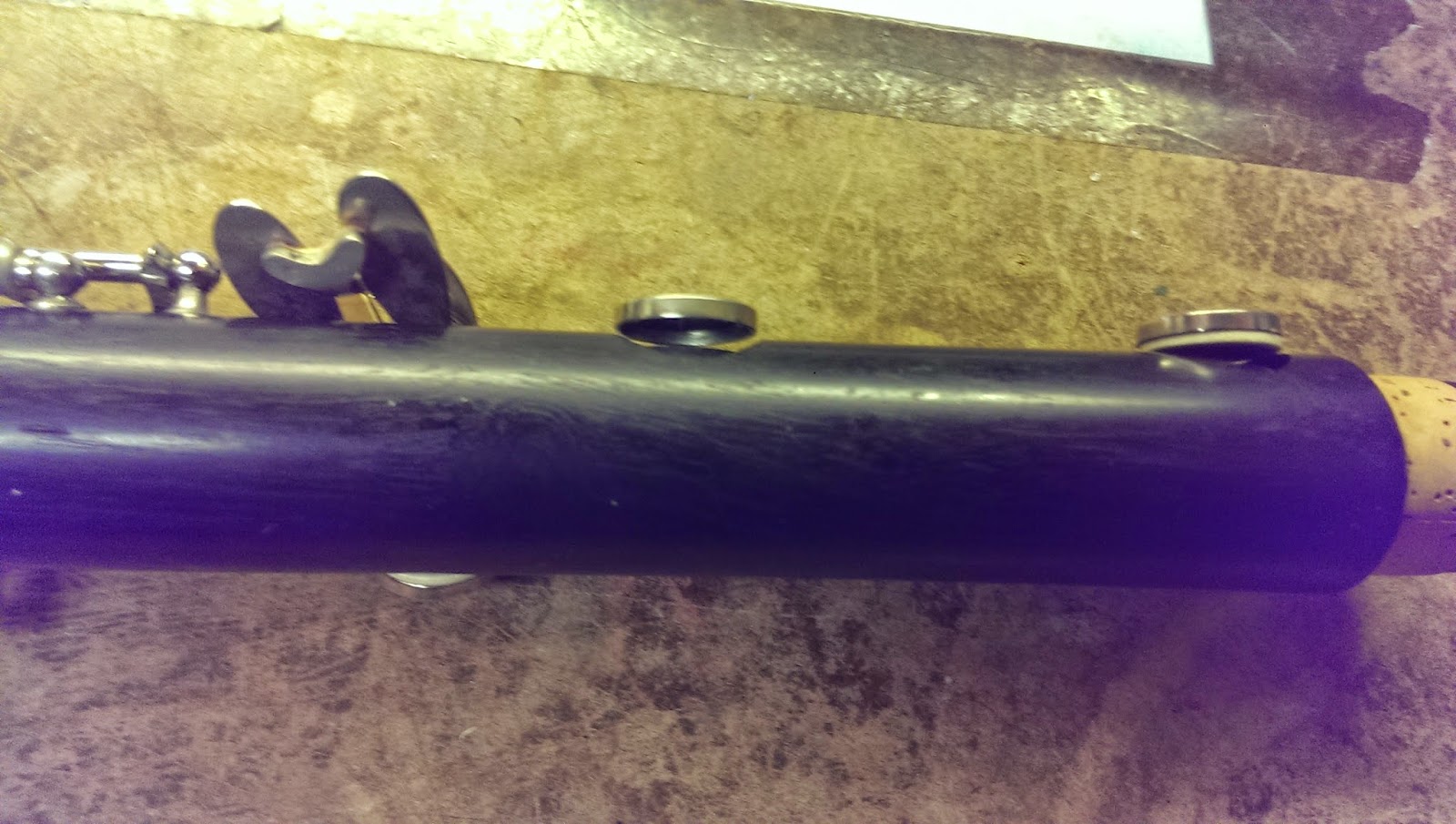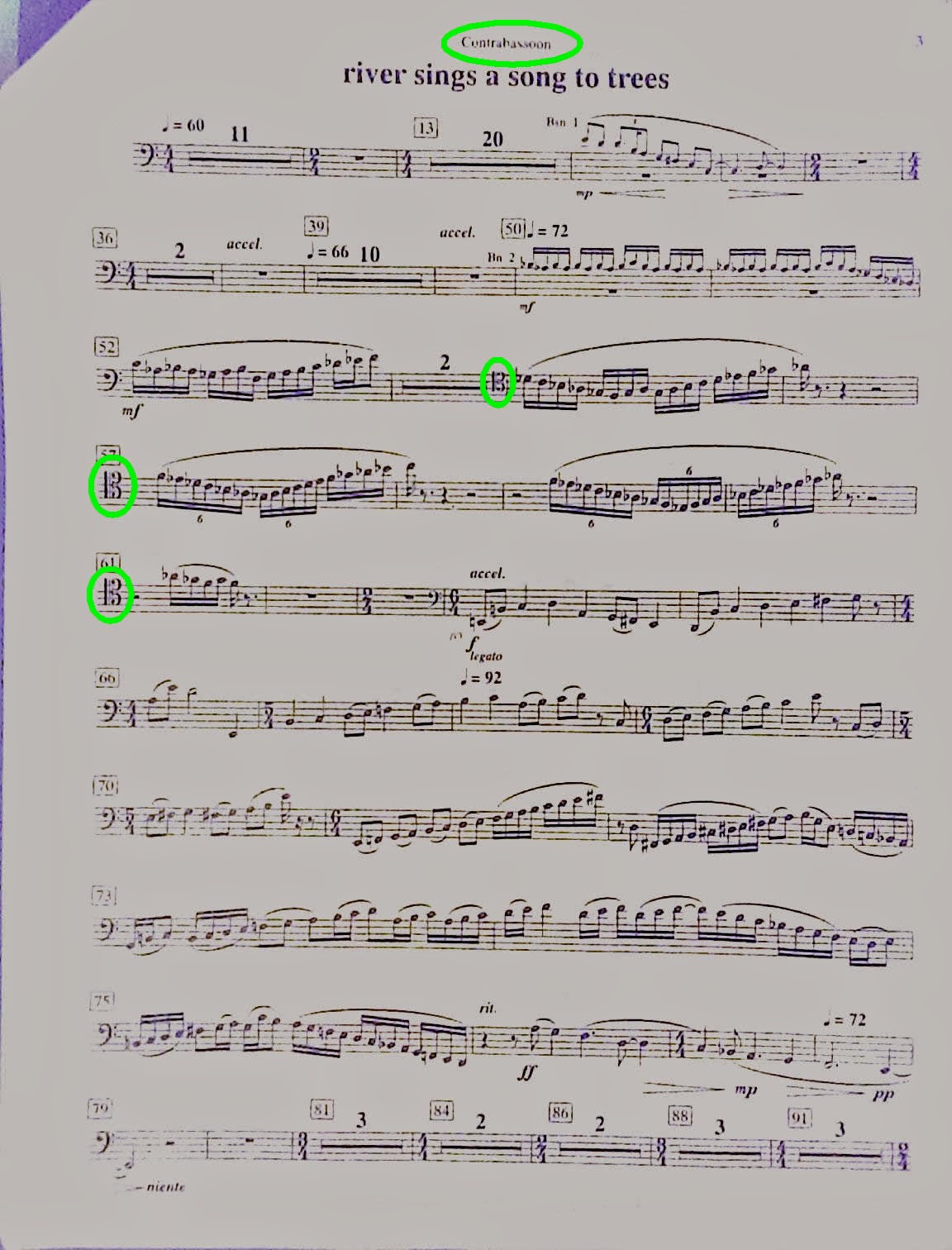Other than that, it was a pretty good week. Monday got things off to a great start. My presentation (I talked about working on it in last week's episode) went super well. I felt like I had great flow and many of my classmates remarked to me at the end of class that they really enjoyed my presentation. I made a concerted effort not to just describe each of the studies I read, but to synthesize all of the content, gleaned across the studies, into a logical presentation of the main ideas and themes that arose in the research. It turns out that my efforts did not go unnoticed. Here is my grade sheet:
I am not sure how my grade stacks up against my classmates', but I feel like 113/115 is a pretty solid effort. I only lost two points: one for going over time, and one for some "nervous" gestures. I think I need to invest in a shot clock. I honestly didn't intend on running over time. There was no clock in the room to gauge my pace by. I had practiced the presentation to the point that I was able to get everything in within the time limit. But, I did it with a clock. Not having a clock bit me there, I think. I didn't feel nervous, but I guess I had some body language that seemed like I was. I do fidget and have trouble standing still. I wonder if that is what she was talking about. I wish I had recorded my presentation so I could have watched it and identified the presentation skills I need to work on...
... because I am submitting a proposal to present a session at the NAfME (National Association for Music Educators) conference in Nashville, fall '15. I am sure I will have more opportunities to practice my presentation skills before then. I am really excited about this session proposal, though. As always, I cannot divulge my content here to protect my intellectual property. But, I can tell you that the theme for the conference is creativity and I am putting together a session proposal about creativity in band and orchestra classroom instruction. I realized as I was jotting down some ideas that I don't actually know a whole lot about creativity. I mean, I know that I am creative and I can identify when others are being creative. But, I don't really know a lot about what it actually is in the scientific sense of the word. So, I decided to do some research on the empirical studies that have investigated creativity. But, I didn't know where to start. I ran across a textbook review, which regaled Mark Runco's Textbook, Creativity: Theories and Themes: Research, Development, and Practice, as the textbook to read. It was described as being impartial and an exhaustive survey of creativity research. Moreover, Runco is (or at least was at the time) the editor of the Creativity Research Journal. So, I downloaded the book from the library and I have been absolutely enthralled by its content. So much of the research into creativity is supporting my own beliefs. Runco also makes points which have challenged what I believe creativity to be and which have opened my eyes to new possibilities for what creativity could entail.
Instead of reviewing a particular research study, this week I will review the Preface of Runco's book for you all. As I finish each chapter, I will include reviews of them as well. I am only halfway through the first chapter. Runco starts out by stating that creativity is hard to define. It has many permutations and exhibits itself differently in different people. He goes on to say the children may even be more creative than adults due to their lack of inhibition, though he admits this to be a controversial stance. Runco explains that the diversity of creativity is cause for its study; it is possibly one of the greatest human resources and should, therefore, be understood. Language is given as an example of the use of creativity in every day life. "It is the creativity of language that demonstrates that it is not entirely acquired through experience and learning. If language depended entirely on experience, we would have difficulty saying things we had not heard before" (p. x). He expands that statement by saying that once background knowledge and some governing rules are learned, humans can manipulate knowledge and content within that framework and that is creativity. This leads into his definition of creativity. Creativity breeds things that are original and useful. Runco argues that "creativity is a potential each of us shares and a talent each of us should employ, probably every day" (p. x). He goes on to say that "creativity is associated with, but distinct from intelligence, innovation, imagination, insight, and health" (p. x) and that "it plays a role in many things, including problem solving, adaptation, learning, and coping" (p. x). Runco ends the Preface by saying that creativity has many influences and that the book will explore many of them. The first chapter is about cognition and creativity and, I must say from what I have read so far, it is fascinating!
Runco, Mark. (2007). Creativity: Theories and Themes: Research, Development, and Practice. Elsevier.
I got my paper back in Child and Adolescent Development this week. I got an A. Bam! The professor had only glowing remarks at the end of my paper. I guess I can write pretty well. Our final paper in the class is an observation paper. We have to pick an adolescent, observe their behavior, and then write about it. However, my PA clearances have not all come back yet, so I cannot legally work with children in the state yet. So, I get to do my paper on a movie of my choosing: Ferris Bueller's Day Off. Bow, bow.. chick, chickah.
On Wednesday, the director of bands strolled into the Pet Shop while I was working. She was looking for some supplies. But, we got to talking a little while she was there. She had just been in Baltimore, conducting the BCPS honor band and ran into Mr. Miles, of Morgan Stat University, while she was down there. It turns out that Mr. Miles spoke glowingly of me to her. I could tell that whatever he told her boosted her opinion of me, not that she had a bad opinion of me to begin with. But, any bit helps!
In my brass methods, I have decided to use the last few classes to let the students do some peer teaching. The problem is that you don't really get real world issues when teaching your fellow, classically-trained, musicians - even if those musicians are playing secondary instruments. So, I make up fake personas for some of the students and didn't tell the student-teachers what I had done. Some of the characters portrayed in my classes this week were:
- You don't know how to keep time. You always speed up.
- You don't know how to keep time. You always slow down. (Those two were sitting next to each other, of course)
- You tap your foot loudly to keep time. Be obnoxious.
- If asked to sing, you sing the wrong notes. If asked to clap, you clap out of rhythm
- Every note you play is either in first position (trombone) or with no valves (trumpet), regardless of the actual fingering for the note.
That is all for now. I hope everyone has a wonderful Thanksgiving. I will be taking a week off from the blog for the holiday. Keep your eyes out in two weeks for the next episode!
Future Dr. Mitch, out!










.jpg)


